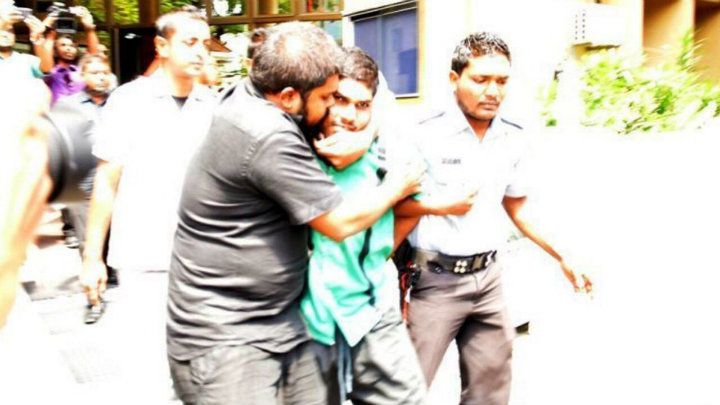Family of murdered MP asks supreme court to delay death penalty for killer
Family members of a murdered MP have asked the supreme court to delay the death penalty for the 22-year-old man convicted of killing him.

23 Jun 2016, 09:00
Family members of a murdered MP have asked the supreme court to delay the death penalty for the 22-year-old man convicted of killing him.
The court is set to rule on the high-profile murder case tonight.
In a letter to the chief justice, the father and brother of late MP Afrasheem Ali cited an incomplete murder investigation in delaying their earlier wish for the death penalty for his killer, Hussain Humam Ahmed.
Humam remains a key witness in identifying those who planned and funded the murder, they said.
Become a member
Get full access to our archive and personalise your experience.
Already a member?
Discussion
No comments yet. Be the first to share your thoughts!
No comments yet. Be the first to join the conversation!
Join the Conversation
Sign in to share your thoughts under an alias and take part in the discussion. Independent journalism thrives on open, respectful debate — your voice matters.




